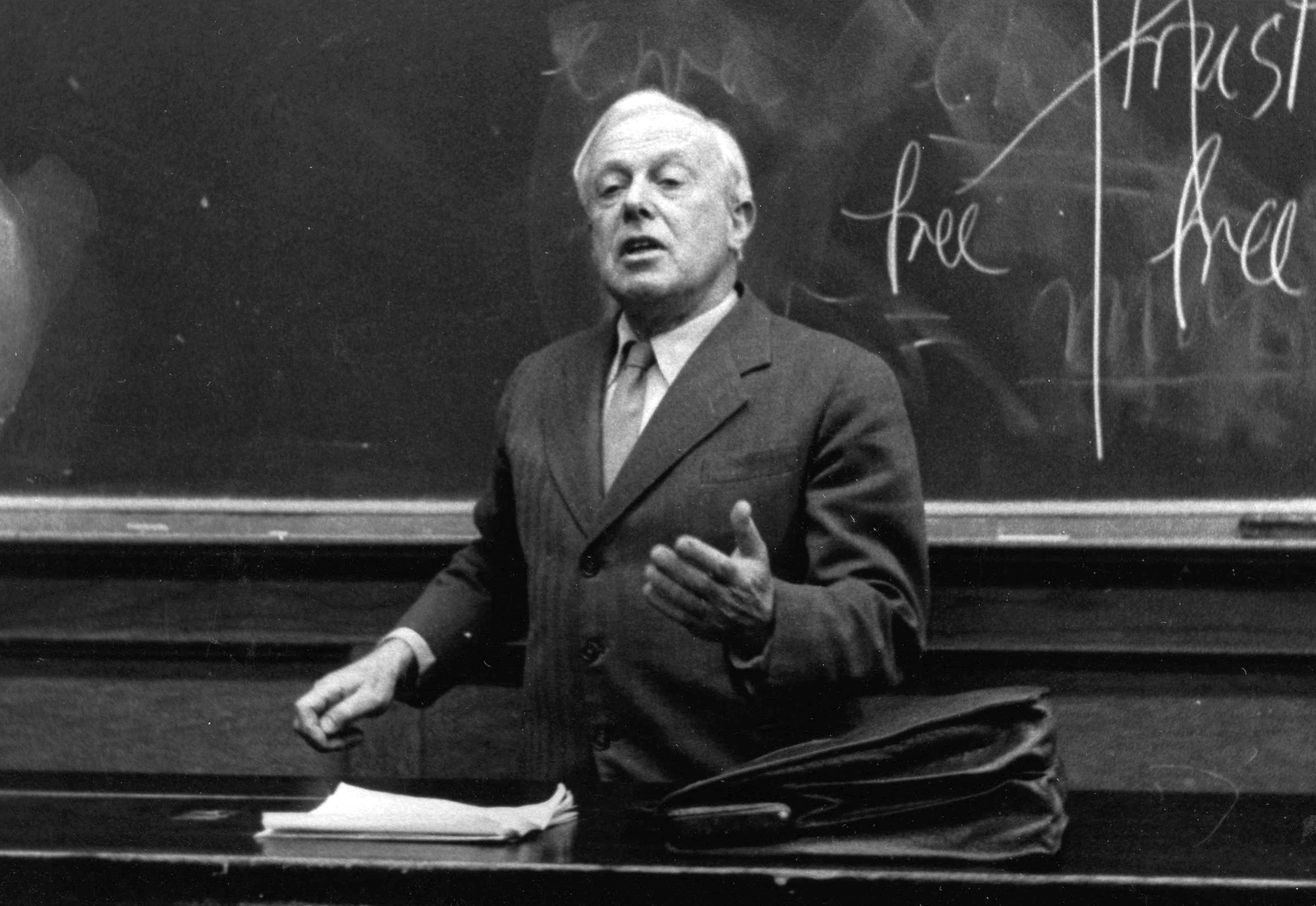Volume 19: American Social History (1959)
Forty-one 1-hour lectures.
The mind of the people in this country has never wanted to live through the two extremes of war and peace [except] in alternation… people were very brutal in wartime indeed, and… they were very sweet and pacifistic in peacetime. But this isn’t the problem. You have to be a warrior in peacetime, and you have to be peaceful in wartime. That is the moral problem of mankind, if you want to comprehend our undertaking as human beings.
—March 25, 1959

In American Social History, Rosenstock-Huessy starts by defining history as “the sum of things for which people have laid down their lives,” and proceeds to apply this definition to the American experience. Particular attention is paid to the peculiar and, from a European perspective, reversed relationship of both war and peace and church and state in America.
Rosenstock-Huessy describes the first century of America’s history as primarily religious, a history of communities; the second as primarily political, a history of individuals; and the third as primarily economic, a history of the human fragments that make up the masses. (The last lectures cover the history of society’s wards, from the slaves and sailors of early American history to the “forces” required by the industrial organization.)
While concentrating on the American experience as formed by religious
communities and marked by violence, the lectures afford Rosenstock-Huessy a framework for general remarks on the relation of faith and religion and of war and peace; the series concludes with remarks on justice and injustice, time, and history as the revelation of the solidarity of the human race.
“Lecture 42” is is technically speaking not a Rosenstock-Huessy lecture at all; it is both more and less than one more lecture in this series. It preserves Page Smith taking questions on Rosenstock-Huessy and the course he had just finished teaching, and so is a unique record of the inspiration across generations on which Rosenstock-Huessy focused so frequently in his lectures.
-
Lecture 01
-
Lecture 02
-
Lecture 03
-
Lecture 04
-
Lecture 05
-
Lecture 06
-
Lecture 07
-
Lecture 08
-
Lecture 09
-
Lecture 10
-
Lecture 11
-
Lecture 12
-
Lecture 13
-
Lecture 14
-
Lecture 15
-
Lecture 16
-
Lecture 17
-
Lecture 18
-
Lecture 19
-
Lecture 20
-
Lecture 21
-
Lecture 22
-
Lecture 23
-
Lecture 24
-
Lecture 25
-
Lecture 26
-
Lecture 27
-
Lecture 28
-
Lecture 29
-
Lecture 30
-
Lecture 31
-
Lecture 32
-
Lecture 33
-
Lecture 34
-
Lecture 35
-
Lecture 36
-
Lecture 37
-
Lecture 38
-
Lecture 39
-
Lecture 40
-
Lecture 41
-
Lecture 42
